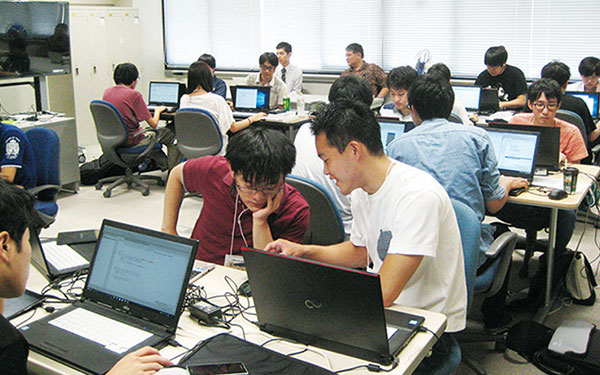Outline
The Public Infrastructure Program, consisting of the fields of Civil and Environmental Engineering, Electrical and Electronic Engineering, and Applied Information Engineering, aims to contribute to the development of academia, industry and society by providing those who will support modern technology and pioneer future knowledge through the results of their studies and research activities in electrical energy, electronics, and information and communication engineering, to support future urban and regional social infrastructure. This program educates students who are highly interested in the realization of sustainable social infrastructure in the era of Society 5.0 and fosters their problem-seeking and problem-solving skills that enable them to independently conduct research and development activities. The purpose of this program is to contribute to society by developing and producing advanced science and engineering professionals with advanced academic knowledge, skills, personal values, a broad perspective and a new sense of values, who can work creatively and cooperatively on the regional and global stages.
Civil and Environmental Engineering
 Faculty Members
Faculty Members
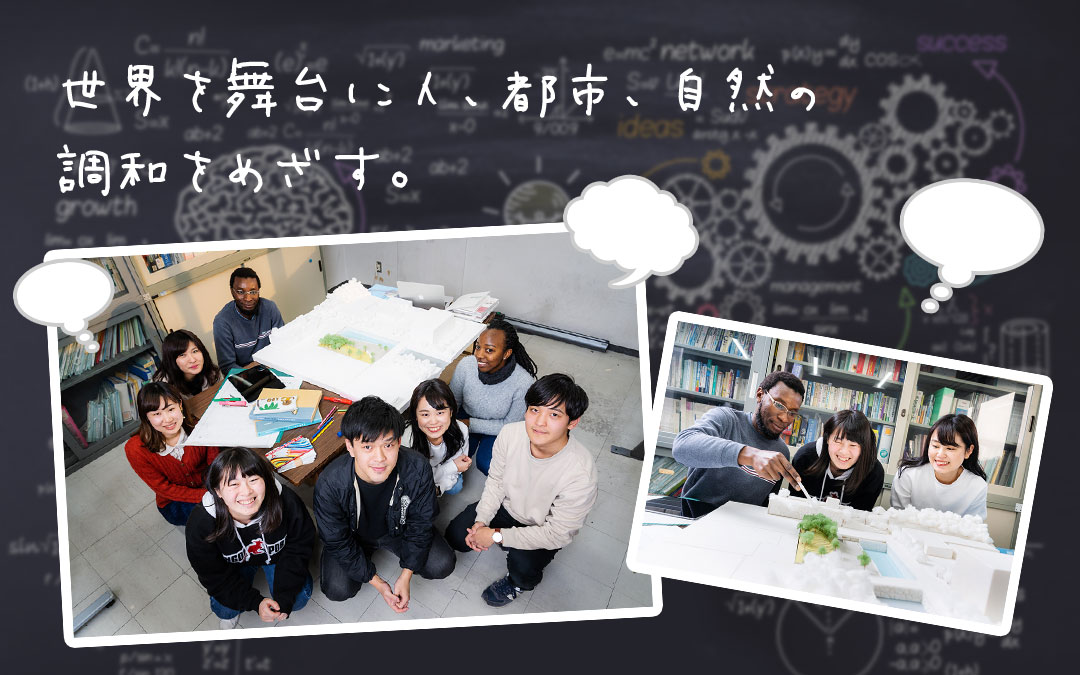
The Civil and Environmental Engineering Field conducts education and research activities with the aim of fostering highly specialized engineers engaged in the development and expansion of social infrastructure while maintaining harmony with the natural environment. The field consists of the three fields of Infrastructure Technology and Design, Urban Planning and Management, and Watershed and Coastal Environmental Engineering, tackling development and conservation from the mountaintop to the seafloor. Infrastructure Technology and Design, deals with civil engineering materials, design and construction methods, and the seismic behavior of civil engineering facilities such as bridges, dams, roads, and underground facilities. Urban Planning and Management deals with the development of living and production environments in urban areas in consideration of transportation systems, disaster prevention, and the maintenance and management of roads and urban infrastructure. Watershed and Coastal Environmental Engineering deals with the physical, chemical, and ecological perspectives needed to understand natural phenomena in the atmosphere, groundwater, rivers, coastal areas, and oceans of watersheds, to achieve sustainable development and harmony with the environment in these areas, and to improve the disaster prevention functions of watersheds and coastal areas. Our goal is not only to train specialists as environmental construction engineers, but also to foster high-level engineers with a comprehensive perspective, creativity, and an international outlook on environmental issues.
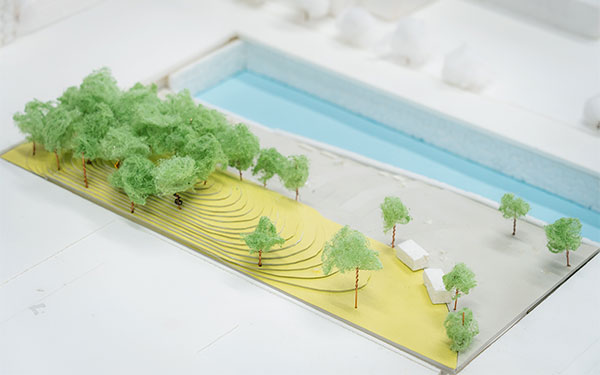
Electrical and Electronic Engineering
 Faculty Members
Faculty Members
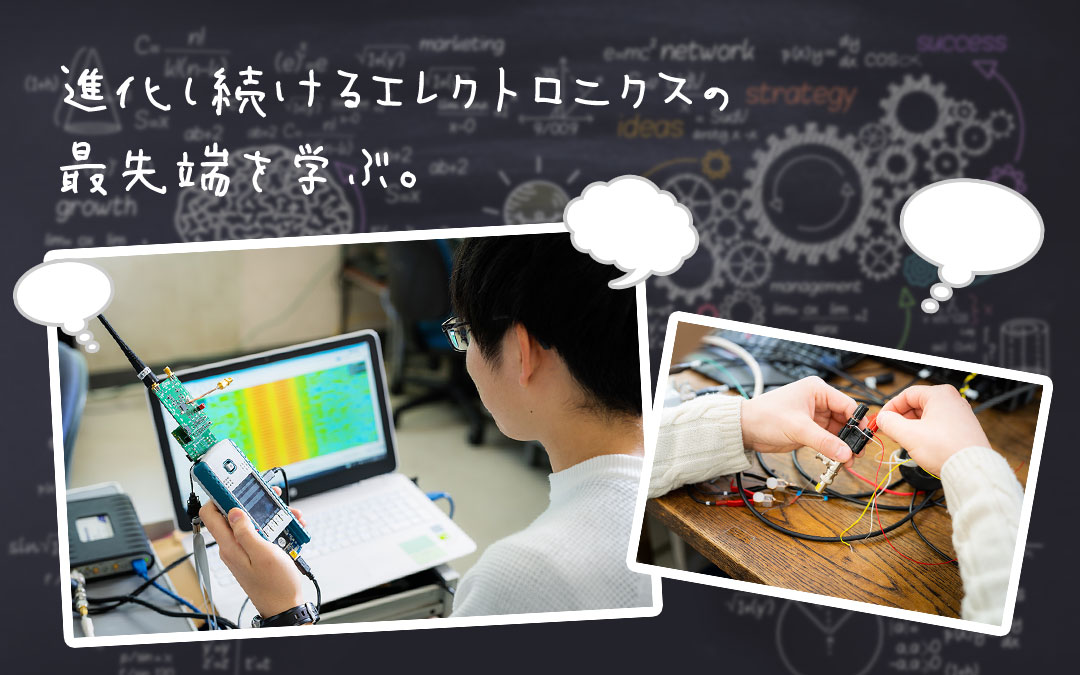
Electrical and electronic engineering has been leading and supporting the technological revolution in various fields of science and technologies. The Electrical and Electronic Engineering Field conducts advanced research in three areas, Electrical Energy Engineering, Electronic Materials and Devices Engineering and Communication Systems Engineering. In these areas, unique research among universities in Japan is being conducted, such as research on technology to introduce genes into cells using discharge plasma and technology to promote the growth of fish, shellfish and plants using plasma treatment, research on the practical application of seed germination acceleration and sterilization treatment using high voltage, and the development of signal processing methods for high-density data storage. Students in this program can acquire a wide range of basic academic skills in electrical and electronic engineering as well as specialized knowledge of the research area and research and development methods.
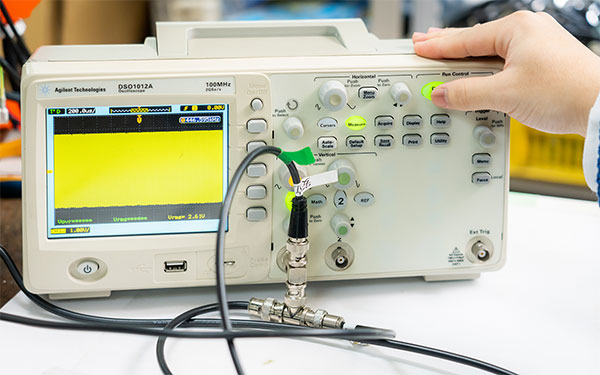
Applied Information Engineering
 Faculty Members
Faculty Members
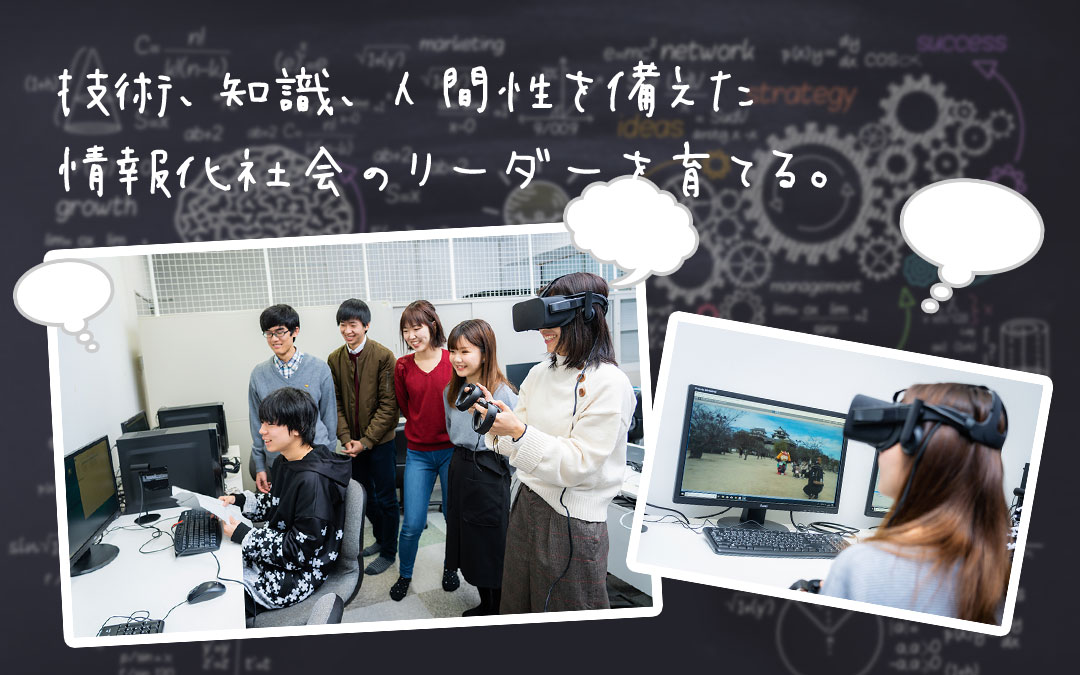
In the field of Applied Information Engineering, we contribute to society by educating professionals who can identify issues in our society and solve such issues using professional knowledge and skills based on information and communication engineering. We train advanced information engineers who can observe people’s living and industries in various societies, who can set goals and plans for solving issues by using professional knowledge and skills in information and communication engineering, who can propose sustainable and feasible approaches, who can carry out projects, and who can work collaboratively with diverse people. We supervise research and development work in the areas of Computer System Engineering, Intelligent System Engineering and Applied Information Engineering, with the purpose of applying these technologies in information and communication engineering, solving social issues and creating new values.
